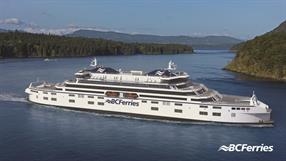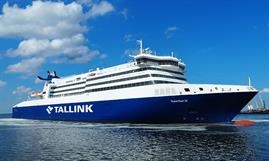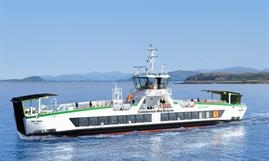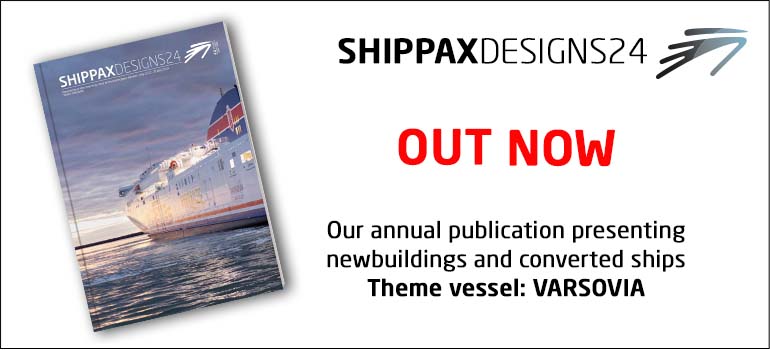
HYDRA was delivered in June 2021 © Norled
Norled’s hydrogen-powered double-ender HYDRA is fitted with two fuel cells
FerryThe world’s first hydrogen powered ferry, HYDRA, owned by Norway’s Norled, has been fitted with two 200 kW fuel cell modules supplied by Canada’s Ballard Power Systems.
The installation of proton exchange membrane (PEM) fuel cells on the 2021-built double ender comes ahead of the vessel's first sea trials, scheduled for December.
"The FCwave® is a true plug-and-play solution providing an optimal, zero-emission replacement for conventional combustion engines onboard ships," said Thomas Therkild Petersen, Marine Product Line Manager, at Ballard Power Systems.
"It is a high power, adaptable engine in a hybrid electric system that incorporates fuel cells working together with batteries to produce efficient, zero-emission power.
"With this real world example, we can help 'demystify' how we reduce the complexity of fuel cell technology integration – which may still be quite new to some ship operators. In a nutshell, this is really zero-emission made easy."
HYDRA, set to become the world's first ferry to operate on hydrogen was delivered from Norway's Westcon Shipyard last year, to a design from LMG Marin. The 82.4m ferry can carry up to 300 passengers and 80 cars.
The DNV-classed HYDRA will operate on the triangular route between Hjelmeland-Spikavik-Nesvik and will be able to reach a speed of nine knots with fuel cells of 2 x 200kW and generators of 2 x 440kW, which will power two Schottel thrusters. The ferry is equipped with an 80m3 capacity tank for the storage of hydrogen.
Norled has already selected industrial gas and energy company Linde to supply HYDRA with liquid hydrogen. The liquid hydrogen will be supplied from Linde's new 24 MW electrolyzer at the Leuna Chemical Complex in Germany, which will use PEM technology to produce green hydrogen.
The fuel cell powered HYDRA is expected to reduce its annual carbon emissions by up to 95 per cent.
© Shippax / MH
Nov 22 2022





















